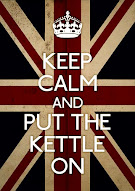Alan Sillitoe was one of the stars of the Angry Young Men, but resisted classification throughout his prolific career. With his death last week, a strand of late 20th-century literature has come to an end.
Like many a writer who elbowed his way into public notice in the 1950s, Alan Sillitoe will probably be remembered for only a tiny fraction of his considerable output. Just as Kingsley Amis's reputation, one suspects, will ultimately stand or fall on Lucky Jim (1954), so posterity will almost certainly end up judging Sillitoe's long and combative career on the basis of its two opening salvoes – the novel Saturday Night and Sunday Morning (1958) and the high-octane short story collection The Loneliness of the Long-Distance Runner (1959). The fault is not Sillitoe's, who wrote at least half a dozen novels ripe to be compared with his groundbreaking debut. Rather, it lies in the nature of the literary stage – a stage where TS Eliot featured as a grand panjandrum and Iris Murdoch as a promising ingénue – on which he took his bow.
The 1950s, lest we forget, was an age of literary sensation, a time when books were "news" and yet – as nearly always happens when books are news – the newsworthiness had very little to do with the literature itself. It was the era of the Angry Young Man (Osborne, Amis, Wain), of more or less radical literary politicking (see Declaration, the 1957 collection of art manifestos edited by the young Tom Maschler), of that notoriously problematic entity "the working-class writer", of aesthetic compacts forged between novelists and grittily realist film-makers, of a fascination – at any rate at its upper level – with the fast-dissolving popular culture described in Richard Hoggart's The Uses of Literacy (1957).
Sillitoe operated on the inner flank of each of these movements – he was as angry, if not angrier, than John Osborne; his first two books were filmed, respectively, by Karel Reisz and Tony Richardson; the pre-war Nottingham backyards he wrote about bear natural resemblances to Richard Hoggart's Hunslet – while always remaining, sometimes to the point of defiance, his own man. On the other hand, while his starring role in the new literary vanguard brought substantial rewards – Saturday Night was one of the first million-selling Pan paperbacks – his originality wasn't always noticed by the critics, and the pigeonholing that characterised the early part of his career often got in the way of later attempts to extend his range.
Nowhere was this typecasting more flagrant than in Sillitoe's instant classification as a "working-class writer". Metropolitan journalists, summoned to pronounce on the new wave of northern novelists, many of them from comparatively humble backgrounds, tended to assume not only that they themselves were socially homogenous, but that their books reflected the same kind of backgrounds, anxieties and outlooks on life. In fact, there are at least half a dozen varieties of the 50s working-class, including the aspirational "lace-curtain working class" (Stan Barstow's phrase) rising from foundry or production line to the solicitor's office or the draughtsman's shop; the provincial bohemians of Philip Callow's Lawrence-inflected Common People (1958); the thrusting meritocrats of John Braine's Room at the Top (1957).
As for the working-class novelist, broadly speaking the paladins of the 50s northern horde belonged to a distinctive social sub-group: first-generation grammar school boys, respectful of their origins but keen to explore the world beyond the horizon. One of the most characteristic scenes in an English novel written during the period 1954-64 is the spectacle of its hero standing proudly on the station platform as he waits for the next train to London.
Set against this upwardly mobile, meritocratic tide, Sillitoe was the outsider to end all outsiders, dyed-in-the-wool Midlands underclass, large parts of whose childhood were spent pushing a handcart containing his family's possessions from one set of flyblown digs to another, whose earliest memories were of his mother yelling "Not on his head" as his illiterate father set about him with his fists, educated not at a grammar school but a secondary modern which disgorged its alumni at 14 to the Raleigh bicycle factory. Ted Hughes (with whom Sillitoe was friendly) once wrote in a letter to Christopher Reid that among the newcomers of the "Angry Decade", he "had the best barbarian credentials, except for maybe Alan Sillitoe".
All this gave Arthur Seaton, the moody, antinomian hero of Saturday Night and Sunday Morning, a distinctive status among the fictional protagonists of the Macmillan era. Unlike the "good" working-class characters of an earlier age, Arthur is an ambiguous figure: generous (when he has the money), affectionate towards women and incubating warm feelings towards the male friend he is quietly cuckolding, but untroubled by the moral implications of detaching a drunk from his wallet or plugging an air-rifle pellet into the cheek of a muck-raking neighbour.
The same ambiguity extends to the milieu in which Sillitoe frames him – the close, tightly knit badlands of back-street Nottingham, with its simmering resentments and neighbourhood quarrels that are always liable to end up in a mass brawl and a night in the cells. If nothing else, Saturday Night is a terrific antidote to the sentimentalising of working-class life, with its roaring fires and benignly shirt-sleeved patresfamilias, promoted by Orwell and the eternal decencies of the proletarian hearth observed by Hoggart. The Uses of Literacy, for example, insists that pre-war Hunslet offered "a good and comely life", characterised by its "sacrifice, cooperation and neighbourliness". Sillitoe thought differently. The Seatons either desert from military service or feign bad eyesight to get out of it, and sit through Churchill's patriotic radio broadcasts with stoical indifference. There is a solidarity about them, but it is the solidarity of a rebel army, born not out of any generosity of spirit but from hate and fear.
To the middle-class critic – and the middle-class reader – Arthur's surly self-centredness was a problem. Joe Lampton, the go-getting arriviste of Braine's Room at the Top, may not have been a particularly pleasant character, but at least he had ambition. Sillitoe's early work, it soon became clear, was about getting by and staying put, fighting against drift, bringing a compound of highly combustible inner resources to bear on the horrors of routine, taking refuge in daydreams: living till 90, as Arthur puts it, with a fresh piece of skirt every day. His "vitality" was his saving grace, but even this could sometimes seem horribly compromised. In John Fowles's first novel, The Collector (1964), in which a jackpot-winning municipal clerk kidnaps an art student and keeps her prisoner in his cellar, Arthur features as a talismanic symbol of the contemporary class war. Left-leaning, CND-fancying Miranda ought theoretically to sympathise with this signifier of oppression and neglect. On the contrary, she detests him. "I think Saturday Night and Sunday Morning is disgusting," she declares. "I think Arthur Seaton is disgusting, and I think the most disgusting thing of all is that Alan Sillitoe doesn't show that he is disgusted by his young man."
To Miranda, Arthur's most blatant offence is his solipsism – "he doesn't care about anything outside his own little life". Worse, "because he is cheeky, hates his work and is successful with women, he is supposed to be vital". If one of the era's critical orthodoxies was that a writer ought not to keep his moral cards quite so close to his chest, then another was that the chief merit of Sillitoe's early books lay in their documentary quality. At their heart, it was assumed, lurked a conventional social realism that was the literary equivalent of cinéma-vérité. All this is profoundly to underestimate the degree of sophistication that Sillitoe brought to his work and his determination to go beyond dramatised sociology into a world where the novelist of "ordinary life" had rarely set foot.
"The Match", for example, perhaps the finest of the stories in The Loneliness of the Long-Distance Runner, is usually read as a straightforward piece of reportage, in which an embittered middle-aged man stamps home from a football game his side have lost, takes his disappointment out on his long-suffering wife and picks a quarrel that will end his marriage. Its abiding feature, though, is less its "realism" – although there is plenty of that – than the stealthiness of its psychology, the ominous prefigurations, a well-nigh determinist sense of individual destiny hanging in the air, and at the end a rather chilling attempt to weave Lennox's fate into a wider pattern of ordinary lives ruined by bad temper and a failure to communicate. British readers admired "The Match", (mostly) assuming that it was another utensil from the late 50s kitchen sink. Sillitoe's French translators, on the other hand, marked him down as the heir to Camus.
In a memorable Desert Island Discs interview recorded a year or so ago, Sillitoe advanced the modest claim that all he had ever really wanted to do was to achieve enough success to enable him to, as he put it, "plod away", writing a book a year and pleasing himself. This is exactly what he contrived to do: the bibliography of his post-1960s output runs to more than 60 items, including poetry, a shrewd and revealing autobiography (Life Without Armour, 1995) and the recent cold war travelogue, Gadfly in Russia. The novels of his maturity are a mixed bunch, differing wildly in subject-matter and approach and often bewildering fans of his early work. To his biographer Richard Bradford this is evidence of a wholesale dereliction of critical duty, in which reviewers who had misunderstood his first books either underrated his achievement or simply failed to comprehend what he was trying to do.
Certainly a trawl through some of his later fiction tends to support this view. A Start in Life (1970) retains some of the old Nottingham background while soon developing into a picaresque (Sillitoe maintained that his mentors were the Spanish novelists Diego Hurtado de Mendoza, Mateo Alemán and Francisco de Quevedo). It takes its hero, Michael Cullen, from the Midlands to a hustler's life in Soho and concludes, amid a hail of bullets, as a skit on the idea of the existential hero. The Broken Chariot (1998), is another kind of skit, in which Sillitoe cunningly inverts the trajectory of his own early career, has an upper-class boy named Thurgarton-Strang break out of his West Country boarding-school and re-invent himself as the Seatonesque "Bert Gedling", a boozy tail-chaser employed by the Nottingham Royal Ordnance factory and aspiring proletarian writer. Neither novel achieved the success it deserved.
Sillitoe was phlegmatic about this neglect, an attitude he brought to most aspects of his long and industrious career. He fitted into no niche, peddled no theories about the nature of his craft ("One either judges, or one writes, and I only care to do the latter," he tersely informed a magazine symposium in 1978), succumbed to perilously few of the blandishments on offer to the successful modern practitioner (creative writing professorships, newspaper columns), and it is difficult not to believe that, with his death, a particular strand of late 20th-century English literature has ceased to exist.
In the 50 and a bit years since Saturday Night and Sunday Morning crash-landed on the weekend books pages, there have been plenty of novelists capable of seeing working-class life from the inside, but none of them was forged in quite the same kind of crucible as Sillitoe. Above all, there is the terrific air of individuation and quiddity brought to a part of the demographic that, with a few honourable exceptions, the pre-1950s novel had routinely ignored. "We all need to remember," Hoggart once remarked, "every day and more and more, that in the last resort there is no such person as 'the common man'." The same can be said of the working-class novelist. Perhaps the greatest compliment one can pay Alan Sillitoe is to say that, in an age of movements and alliances, shared assumptions and mass thought – all the collectivist baggage that hangs around the writer's neck like so many millstones – he represented no one but himself.
--
DJ Taylor
The Guardian, Saturday 1 May 2010 Article history









croppedsidebar.jpg)

.png)

















